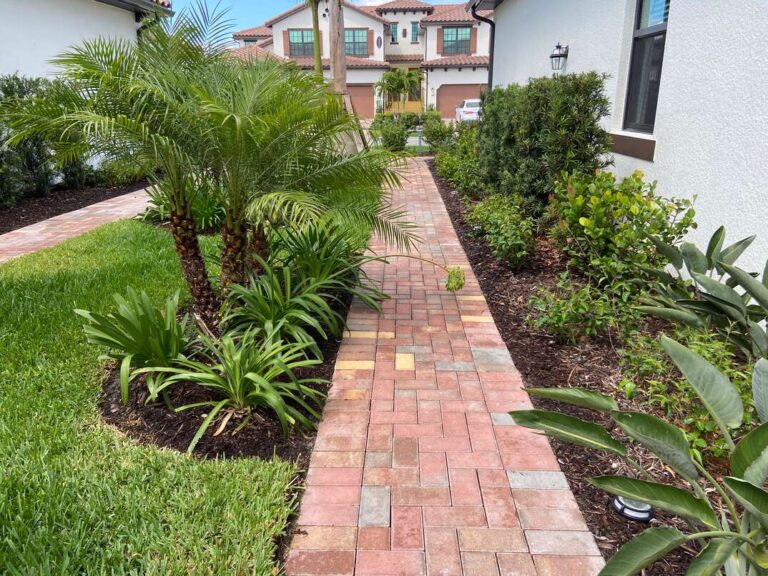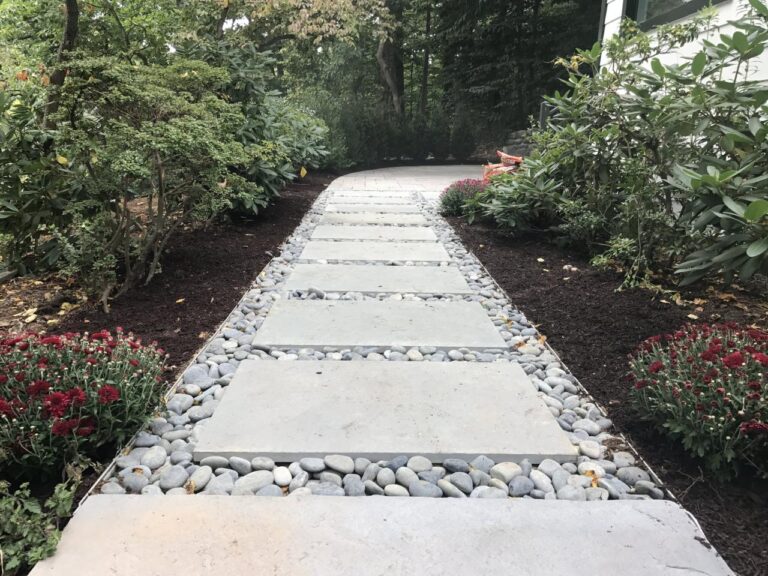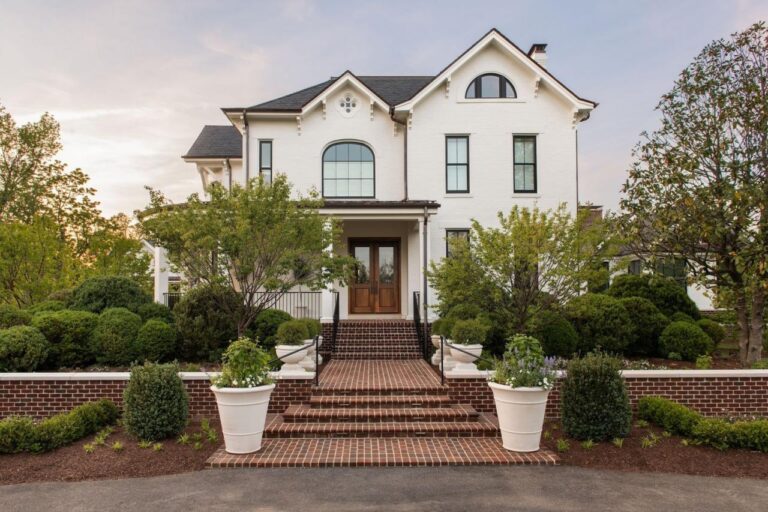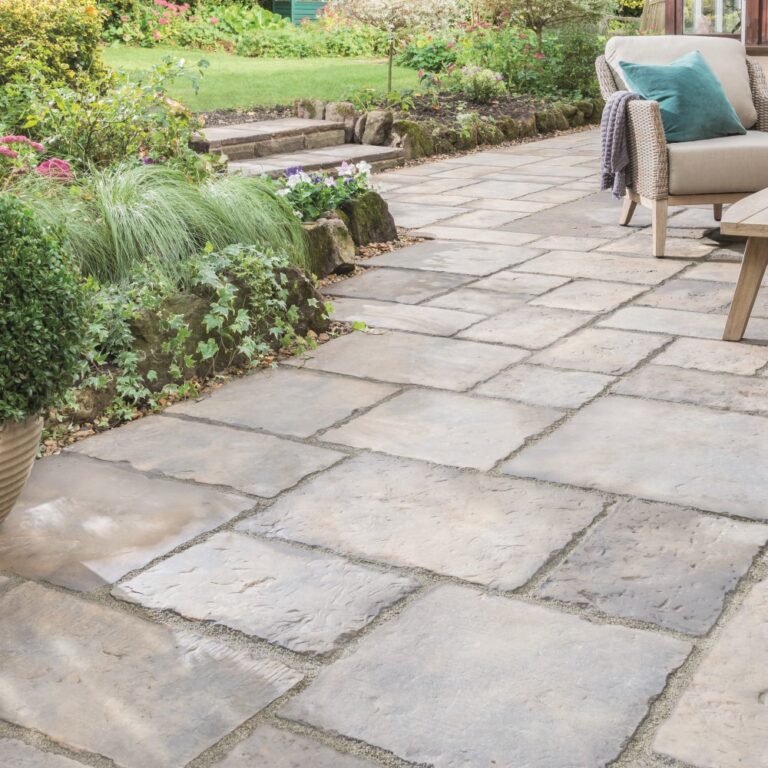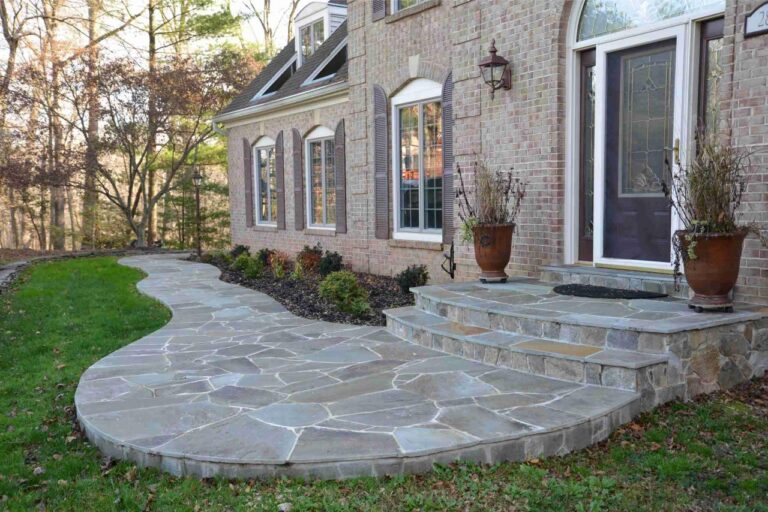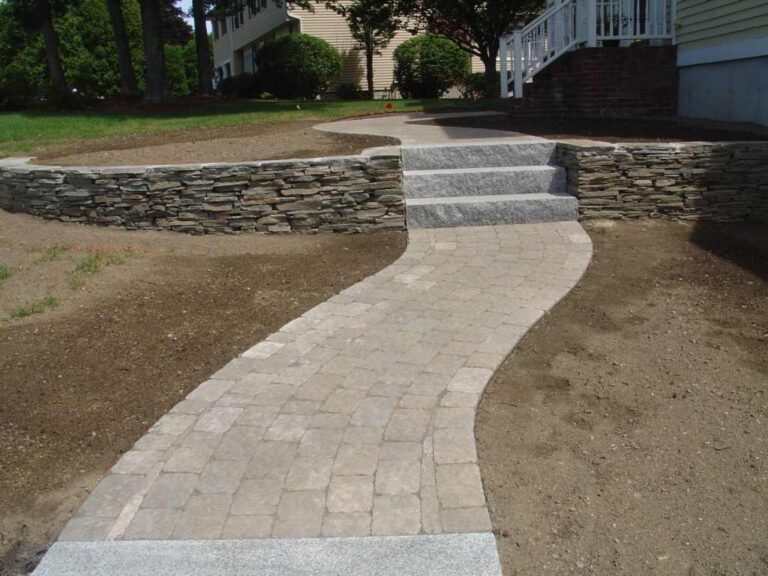Patio Walkway
Patio Walkway: Transform your outdoor space with a beautifully designed and functional walkway. This guide explores everything from material selection and design considerations to construction techniques and ongoing maintenance, ensuring your patio walkway enhances both the aesthetics and usability of your outdoor area. We’ll delve into various materials, comparing their durability, cost, and aesthetic appeal, providing you with the knowledge to make informed decisions for your project.
Whether you’re envisioning a sleek, modern walkway or a charming, rustic path, this comprehensive guide will equip you with the information and inspiration needed to create the perfect outdoor pathway. We’ll cover design layouts for various patio sizes, explore different paving patterns and their visual impact, and provide step-by-step instructions for installation. Finally, we’ll address essential maintenance practices to ensure your patio walkway remains beautiful and functional for years to come.
Patio Walkway Materials
Choosing the right material for your patio walkway is crucial, impacting both aesthetics and longevity. This section compares concrete, brick, pavers, and natural stone, considering durability, maintenance, cost, and visual appeal.
Material Comparison: Durability, Maintenance, Cost, and Aesthetics, Patio walkway
The selection of patio walkway materials significantly influences the overall look, lifespan, and maintenance needs of your outdoor space. The following table summarizes the key attributes of common materials.
| Material | Durability | Maintenance | Cost (Approximate) | Aesthetics |
|---|---|---|---|---|
| Concrete | High; resistant to cracking with proper reinforcement | Moderate; occasional sealing and cleaning | Low to Moderate | Versatile; can be stained, stamped, or textured for various looks |
| Brick | High; durable and long-lasting | Moderate; occasional cleaning and weed removal | Moderate to High | Classic and timeless; offers a wide range of colors and textures |
| Pavers | High; individual units can be replaced if damaged | Low to Moderate; occasional cleaning and weed control | Moderate to High | Highly versatile; available in various shapes, sizes, colors, and materials (concrete, stone, etc.) |
| Natural Stone | High; extremely durable and weather-resistant | Low; minimal maintenance required | High | Elegant and luxurious; offers unique textures and colors |
Patio Walkway Design
Effective patio walkway design enhances both functionality and visual appeal. This section explores layout options for various patio sizes, the impact of curves and straight lines, paving patterns, and the integration of complementary design elements.
Walkway Layouts for Different Patio Sizes
The ideal walkway layout depends on the size and shape of your patio. Here are examples of small, medium, and large spaces:
- Small Patio: A simple, straight walkway leading directly to the patio’s focal point (e.g., seating area) maximizes space and minimizes clutter.
- Medium Patio: A slightly curved walkway can add visual interest while maintaining efficient flow. Consider incorporating a small seating area along the path.
- Large Patio: A more elaborate design with multiple pathways branching out from a central point can create distinct zones within the patio space. This allows for different activities and areas of focus.
Visual Impact of Curves and Straight Lines
Straight lines create a sense of order and formality, ideal for modern or minimalist designs. Curves, conversely, add a more relaxed, natural feel, softening the overall look and guiding the eye through the space. A combination of both can provide a balanced and interesting design.
Paving Patterns and Their Visual Effects
Different paving patterns significantly alter the visual impact. For example, a running bond pattern provides a clean, linear look, while herringbone adds a more intricate and sophisticated feel. Basketweave creates a textured, informal appearance.
Integrating Design Elements: Lighting, Plants, and Seating
Strategic placement of lighting, plants, and seating areas enhances the walkway’s functionality and aesthetic appeal. Low-level lighting can create a warm ambiance, while strategically placed plants add color and texture. Seating along the walkway provides comfortable resting spots.
Patio Walkway Construction
Proper construction ensures a durable and attractive walkway. This section provides step-by-step guidance for paver installation and best practices for concrete walkways, addressing challenges like uneven terrain and creating decorative borders.
Paver Patio Walkway Installation
Installing a paver walkway involves several key steps:
- Base Preparation: Excavate the area, compact the sub-base, and lay a layer of gravel for drainage.
- Paver Placement: Begin laying pavers, ensuring even spacing, and using a level to maintain a consistent height.
- Joint Filling: Fill the gaps between pavers with polymeric sand to prevent weed growth and stabilize the walkway.
Ensuring a Level and Stable Concrete Base
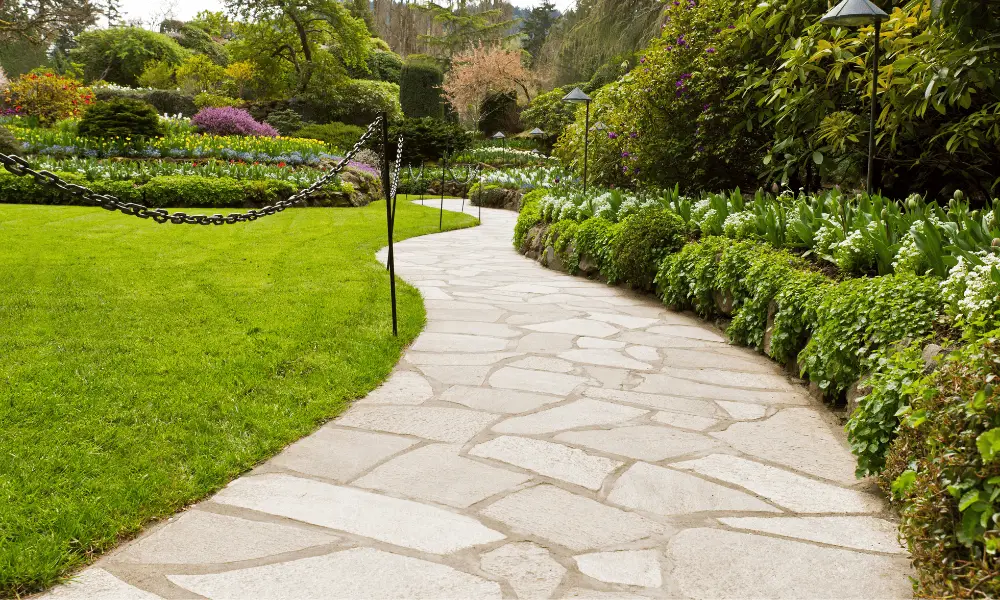
Source: bestplaygroundsets.com
A solid, level base is essential for a long-lasting concrete walkway. This involves proper excavation, compaction of the sub-base, and the use of a level during the pouring process. Reinforcement with rebar can further enhance durability.
Dealing with Slopes and Uneven Terrain
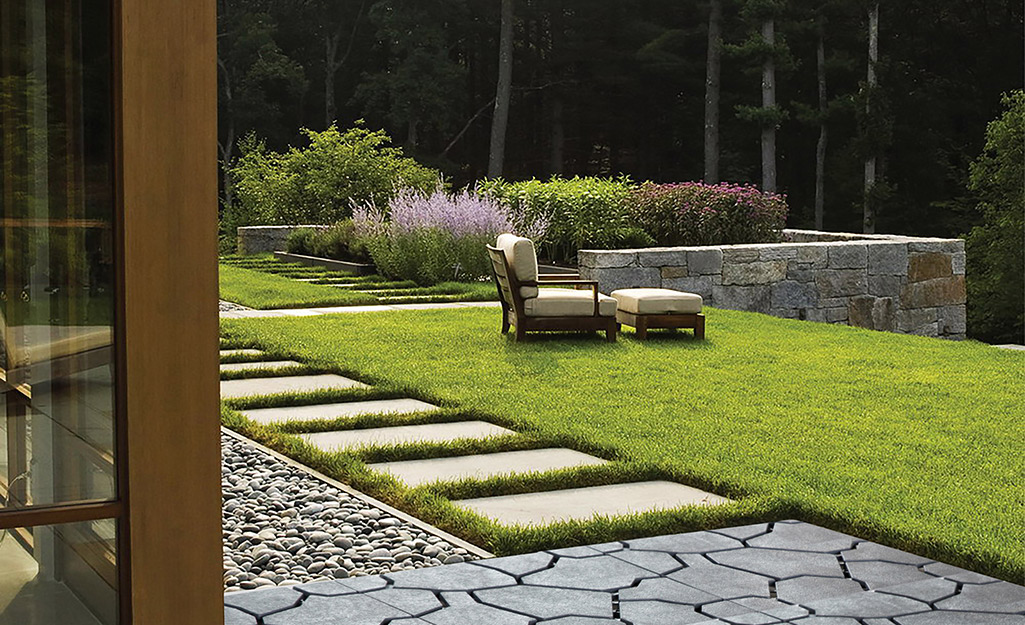
Source: home depot-static.com
Slopes and uneven terrain require careful planning and execution. This may involve terracing, creating a retaining wall, or using specialized techniques to ensure proper drainage and a level walking surface. Consult a professional for complex situations.
Creating Decorative Borders
Decorative borders enhance the overall appearance. Options include using contrasting pavers, natural stone, or even creating a small raised border with concrete or brick. The choice depends on the overall design aesthetic.
Patio Walkway Maintenance
Regular maintenance extends the lifespan of your patio walkway. This section details maintenance routines for various materials, repair techniques, common problems, and preventative measures.
Regular Maintenance for Different Materials
Maintenance requirements vary by material. Concrete may need occasional sealing to prevent staining, while pavers require regular cleaning and weed control. Natural stone generally requires minimal maintenance.
Repairing Minor Cracks or Damage
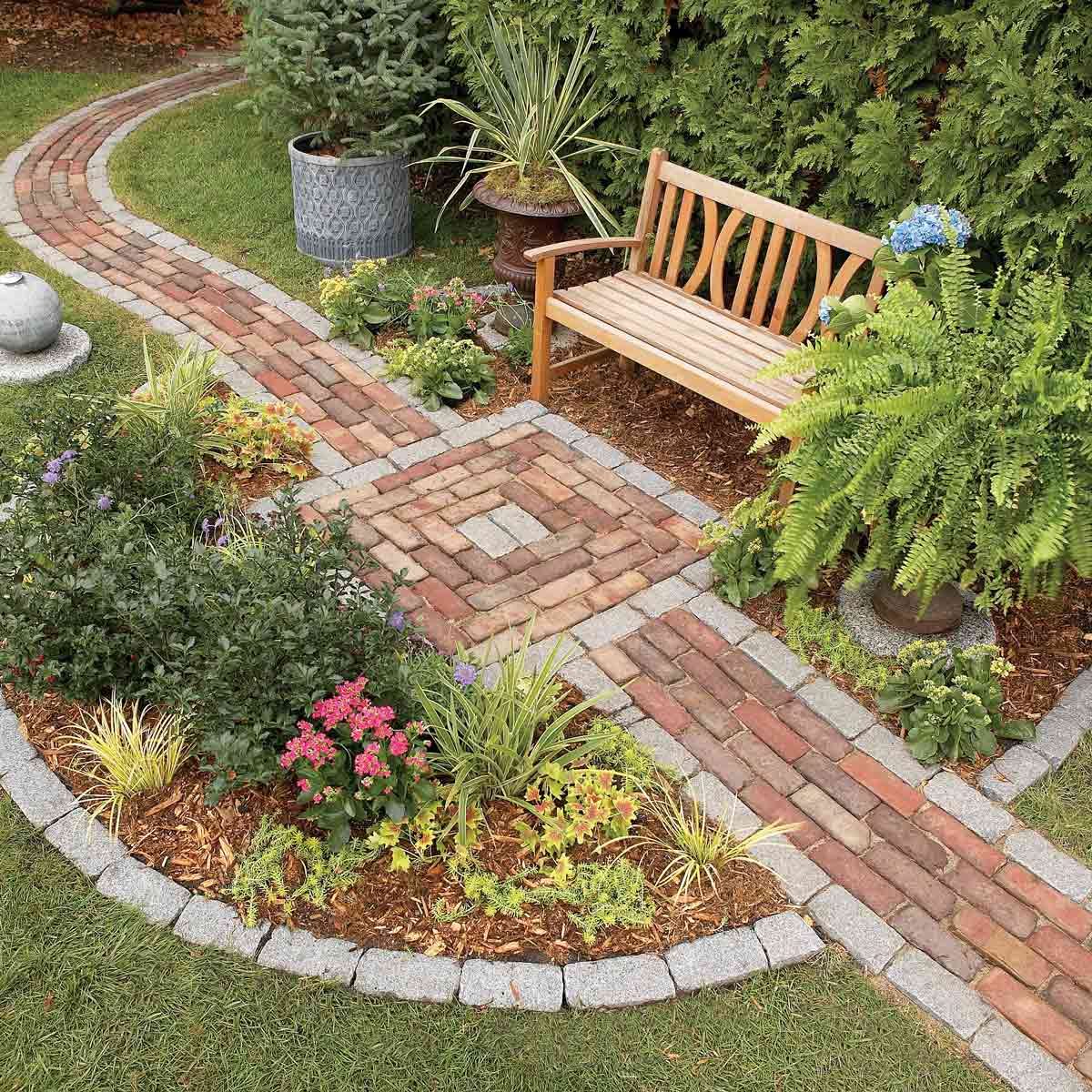
Source: familyhandyman.com
Minor cracks in concrete can be repaired with patching compounds. Damaged pavers can be individually replaced. Larger repairs should be handled by professionals.
Common Problems and Solutions
Common issues include settling, cracking, and weed growth. Settling can be addressed by recompacting the base. Cracks require repair, and weed growth can be controlled through proper joint filling and regular cleaning.
Preventative Maintenance Tips
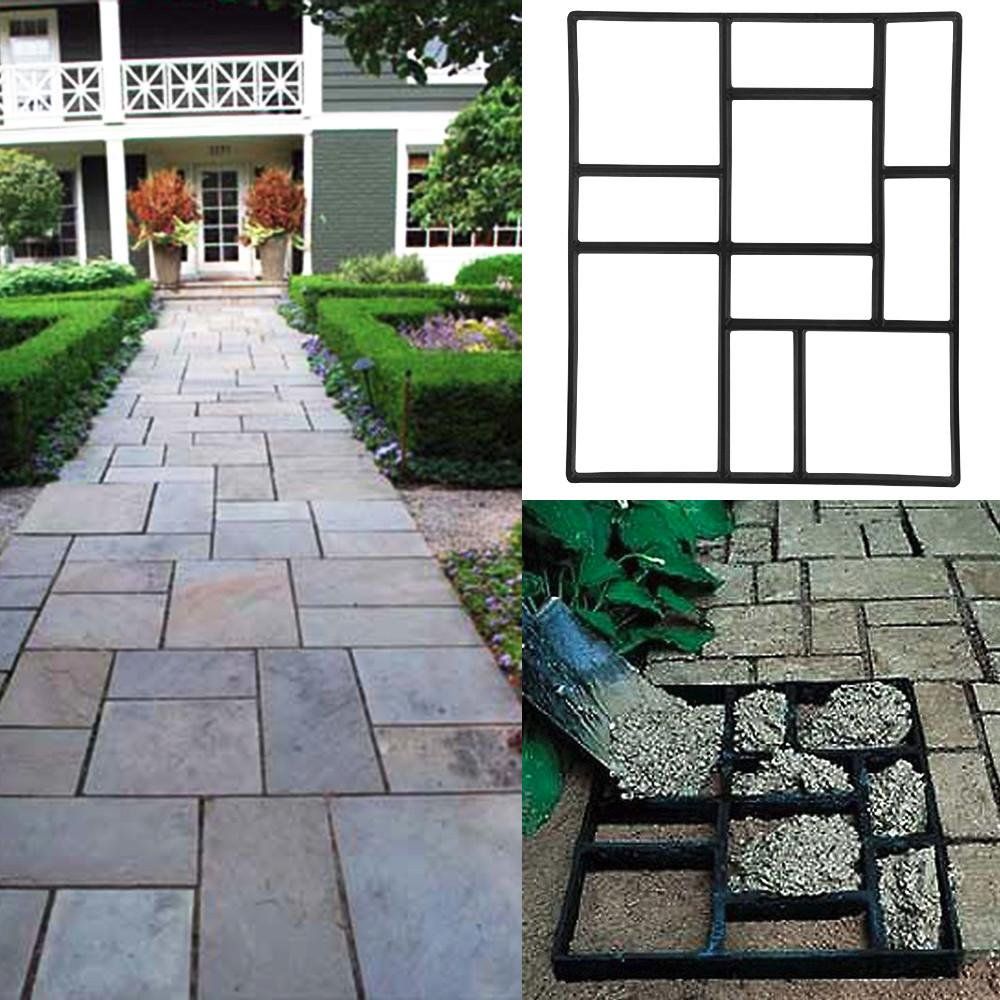
Source: pinimg.com
Regular cleaning, sealing (where applicable), and weed control are crucial for preventative maintenance. Addressing minor issues promptly prevents them from escalating into larger, more costly problems.
Patio Walkway Lighting and Accessories
Lighting and accessories enhance both the functionality and ambiance of your patio walkway. This section explores lighting schemes, accessory choices, sustainable elements, and smart home integration.
Patio Walkway Lighting Schemes
Three lighting schemes can be considered:
- Ambient Lighting: Low-level path lighting using recessed fixtures creates a warm and inviting atmosphere.
- Task Lighting: Brighter lights near seating areas or steps improve visibility and safety.
- Accent Lighting: Spotlights highlighting plants or architectural features add visual interest.
Enhancing the Walkway with Accessories
Planters add color and texture. Benches provide comfortable resting spots. Decorative elements such as statues or fountains enhance the overall aesthetic appeal.
Sustainable and Eco-Friendly Elements
- Use recycled materials for pavers or borders.
- Incorporate drought-tolerant plants.
- Use energy-efficient LED lighting.
Smart Home Technology Integration
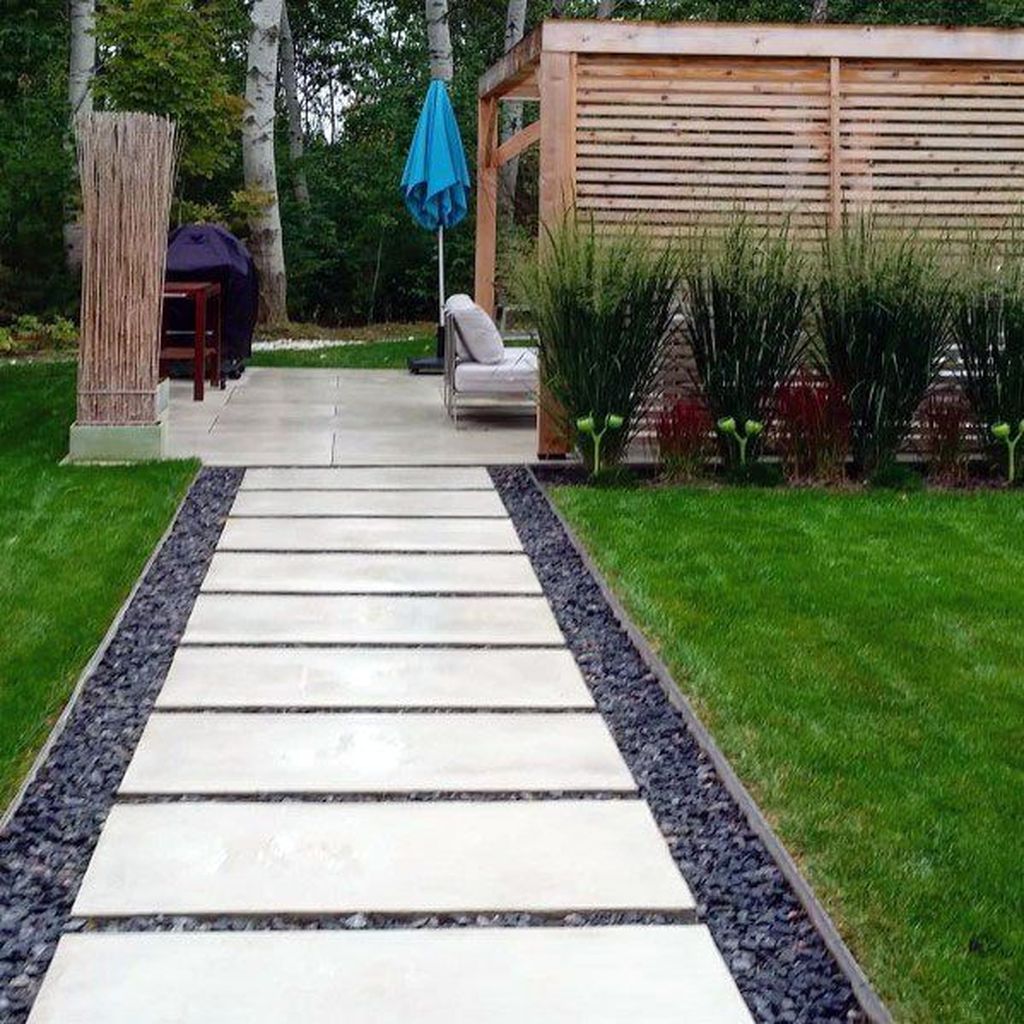
Source: pinimg.com
Smart lighting systems allow for remote control and automation of lighting, enhancing both convenience and security. Motion sensors can automatically activate lights, improving safety at night.
Query Resolution
What is the best time of year to install a patio walkway?
Spring or fall are generally ideal, as the ground is not frozen (as in winter) and the weather is milder than in summer, allowing for better curing of concrete and easier workability.
How do I prevent weeds from growing in my patio walkway?
Use a landscape fabric under the pavers or concrete to block weed growth. Regularly remove any weeds that emerge through cracks or gaps.
How often should I seal my patio walkway?
The frequency depends on the material and climate. Check the manufacturer’s recommendations, but generally, sealing every 2-3 years is recommended for pavers and natural stone to protect against staining and weathering.
What is the average lifespan of a patio walkway?
This varies greatly depending on the materials used, installation quality, and maintenance. With proper care, a well-built patio walkway can last for decades.
Can I install a patio walkway myself?
Smaller, simpler projects may be DIY-friendly, especially using pavers. Larger or more complex projects with concrete or significant grading might require professional help.
